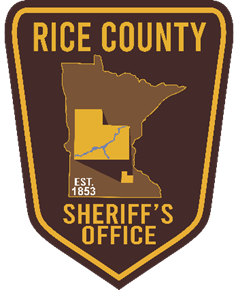Always Dial 911 to report an emergency
- When using a traditional telephone, the communication with the Dispatch Center knows where the call is originating from. This is known as “Enhanced 9-1-1”. The 9-1-1 system performs differently when dialing from a cell phone, a telephone within a large business, or using Voice Over Internet Protocol (VOIP):
- When you dial 911, the telephone company identifies your call and routes it to the appropriate dispatch center. If you are calling from a cell phone, the call has to route from your phone to the cell tower to the telephone company’s database before routing to the Emergency Communications Center (ECC). This takes seconds but seems to take longer because the call is silent until it is routed to the ECC.
- Large companies have an internal phone system. When a call is made to the 9-1-1 center, one phone number and location is usually displayed. Where a company may have multiple locations, the location of the emergency call that is displayed could be a different building. Always state the correct address of the emergency location.
What you need to tell the dispatcher when you call 9-1-1:
- What type of emergency you are reporting.
- Your name and call back phone number.
- Indicate the type of injuries and number of people that might be affected. Is someone trapped in a vehicle or machne?
- Your location.
- If you are in a large building with multiple entrances, indicate which entrance should be used. Have someone go to the entrance to direct the emergency personnel.
- STAY ON THE LINE. If you must leave the phone, do not hang up the phone.
What to do before emergency personnel arrive:
- Don’t panic.
- Have someone stay with any injured people.
- Start any first aid, if it is needed.
- If someone is injured, try to get information on the individual’s medical history, medications, allergies, and emergency contacts. Give this information to the emergency personnel.
- Prepare a brief story on what happened before the call to 9-1-1.
Sometimes a call to 9-1-1 is placed accidently. If that should occur, do not hang up. Let the emergency dispatcher know it was an accidental call. If you hang up, the dispatch center will attempt to call you back. If they cannot contact you, emergency personnel may be dispatched to ensure your safety. It is better to take 30 seconds to let the dispatch center know it was an accident than have emergency personnel dispatched needlessly.
Calls using 9-1-1 must be limited to EMERGENCY situations, when an immediate need exists. Non-emergency phone numbers are available in the local telephone directory. They should be used for routine business, inquiries, or reporting other events. Some non-emergency phone numbers are:
| Phone Number | Agency | Phone Number | Agency |
| 507-645-5252 | Dundas Police | 507-334-8773 | Faribault Fire |
| 507-334-4305 | Faribault Police | 507-789-6415 | Kenyon Fire |
| 507-744-2300 | Lonsdale Police | 507-595-2507 | Kilkenny Fire |
| 507-645-4477 | Northfield Police | 507-744-2021 | Lonsdale Fire |
| 507-334-4391 | Rice County Sheriff | 507-685-2303 | Morristown Fire |
| 507-366-8124 | Northfield Fire | ||
| 507-332-8000 | Nerstrand Fire |
